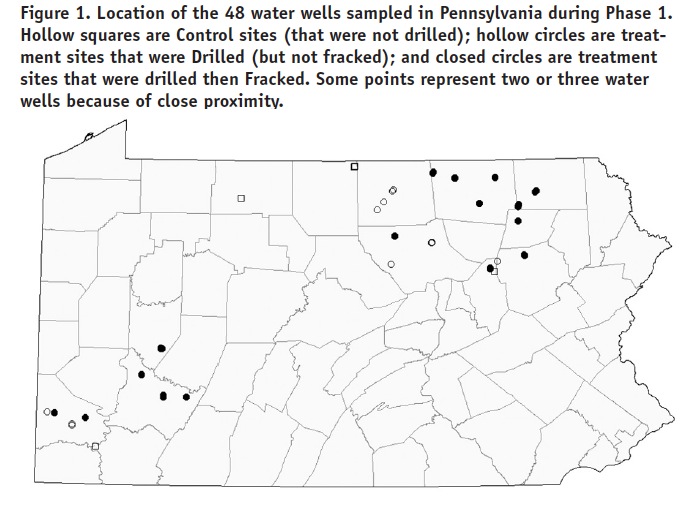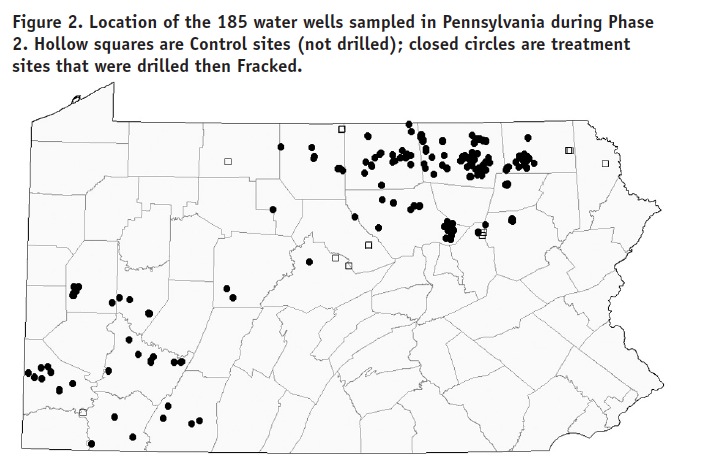THE CENTER FOR RURAL PENNSYLVANIA
Summary
This research looked to provide an unbiased and large- scale study of water quality in private water wells in rural Pennsylvania before and after the drilling of nearby Marcellus Shale gas wells. It also looked to document both the enforcement of existing regulations and the use of voluntary measures by homeowners to protect water supplies.
For the study, the researchers evaluated water sampled from 233 water wells in proximity to Marcellus gas wells in rural regions of Pennsylvania in 2010 and 2011. Among these were treatment sites (water wells sampled before and after gas well drilling nearby) and control sites (water wells sampled though no well drilling occurred nearby).
Phase 1 of the research focused on 48 private water wells located within about 2,500 feet of a nearby Marcellus well pad, and Phase 2 focused on an additional 185 private water wells located within about 5,000 feet of a Marcellus well pad.
In this study, statistical analysis of post-drilling versus pre-drilling water chemistry did not suggest major influences from gas well drilling or hydrofracturing (fracking) on nearby water wells, when considering changes in potential pollutants that are most prominent in drilling waste fluids.
Download full report (PDF): The Impact of Marcellus Gas Drilling on Rural Drinking Water Supplies
About The Center for Rural Pennsylvania
www.rural.palegislature.us
“The Center for Rural Pennsylvania is a bipartisan, bicameral legislative agency that serves as a resource for rural policy within the Pennsylvania General Assembly.
The Center works with the legislature, educators, state and federal executive branch agencies, and national, statewide, regional and local organizations to maximize resources and strategies that can better serve Pennsylvania’s 3.4 million rural residents.”
Tags: Marcellus Gas Drilling, The Center for Rural Pennsylvania, Water Supplies








 RSS Feed
RSS Feed